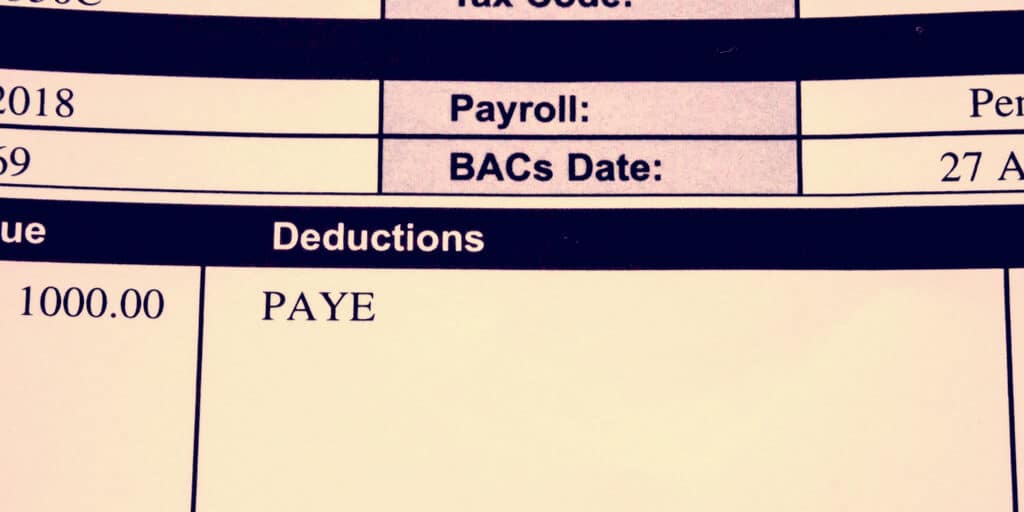
Entering the world of business management can be extremely rewarding, but there are many elements that can leave you feeling overwhelmed. One such element is getting started with payroll. As soon as you employ just one person, there are considerations to make about your responsibilities as an employer – and, as almost all employees would tell you, payday is probably the most important. Get to know the basic aspects of payroll for a UK business, with our easy to digest guide.
In-house or Outsourced Payroll Services?
The first step when it comes to running payroll for your startup is deciding whether you will be managing your payroll in-house or outsourcing to a specialist payroll provider.
There are advantages to both avenues, but it’s important to remember that if you’re looking to manage payroll in-house, you will need to invest time in educating yourself of the various steps, deadlines and legislation to be adhered to. Afterall, when you’re getting a business off the ground, the last thing you want is to pay staff incorrectly, miss important deadlines and receive costly fines.
Telling HMRC about a New Employee
When you have decided to employ someone, you should ask the new employee for a copy of their P45 – which details the pay, tax, and National Insurance information from their previous job. This information must be sent to HMRC, who will use it to check the employee’s tax code and National Insurance band, which then will tell you, the employer, how much tax and National Insurance you need to pay to HMRC on their behalf.

What is PAYE?
HMRC have introduced a system known as PAYE – or Pay As You Earn – which is used for companies to communicate payroll information with them. Businesses that run their own payroll must use software that can gather PAYE information to send to HMRC in ‘real time’ – this is known as Real Time Information (RTI). Businesses who decide to handle payroll in house have to use software approved by the HMRC and will need to send reports called Full Payment Submissions (FPS) to HMRC, informing them of all payment information relating to each employee. Some businesses choose to outsource their payroll rather than trying to handle this complicated process in house.
If you decide to payroll process in house and use Payroll Software
You will need software to be able to report payroll information to HMRC. However, with over 100 to choose from, deciding which is for you can be tricky. To help you find software that can be used with HMRC’s PAYE Online system, HMRC provide an approved list; https://www.gov.uk/payroll-software.
There are different software choices available which are tailored to suit the needs of different businesses, such as if they are large or small. If you’re not sure what you need, contact us for some helpful advice. It’s important to consider not only your immediate situation, but also look to the future: are there plans for expansion? If so, it might be worth implementing the appropriate payroll software for a larger company, to avoid having to migrate to a new system at a later date, but that could prove expensive.

Understand Payroll Legislation
You need to know about the UK law surrounding paying employees to find out your responsibilities as an employer. UK Payroll legislation is ever-evolving, so it’s important to stay on top of changes as and when they are introduced. The gov.uk website is a good place to start when it comes to this.
Minimum wage
At this time, in autumn 2019, these are the National Minimum Wage & National Living Wages that must be paid by all employers;
| Employees aged 25+ : | £8.21 per hour |
| Employees aged 21-24 : | £7.70 per hour |
| Employees aged 18-20 : | £6.15 per hour |
| Employees aged 16-17 : | £4.35 per hour |
| Apprentices (aged 19 or under, or in the 1st year of an apprenticeship): | £3.90 per hour |
As an employee ages or their wages change, this must be updated in your payroll software, to enable the most recent information to get to HMRC.
Pensions in the UK
In 2008 the UK government introduced The Pensions Act, which is designed to protect employees when they can no longer work. This states that all employers must offer a workplace pension, automatically enrolling all employees. Employees can choose to opt out, but employers have an obligation to re-enrol them every three years.

When it comes to pensions, other employer responsibilities include communicating changes to the pension provider such as age, earnings, and when employees wish to increase their own contribution.
Maternity and sickness leave
UK law also dictates what must be paid by employers when employees are sick or on maternity leave. This is known as statutory pay. Currently, employees who are eligible for statutory sick pay should be paid £94.25 per week, for up to 28 weeks. Maternity pay is currently set at 90% of your weekly earnings for the first six weeks, and then whichever is lower for the next 33 weeks – £148.68 per week, or 90% of your weekly earnings. Both of these types of statutory pay are tax deductible.
What Happens when Payroll Goes Wrong?
As an employer, you have a responsibility for ensuring that both your employees and HMRC are paid correctly, and there can be costs for making payroll mistakes. Problems can include;
- FPS reports for all employees must be sent to HMRC on or before their payday, via your payroll software. Failure to do so could lead to a fine.
- You could be fined if you are late sending the FPS reports, or you do not send the expected number of reports. The fine will differ depending on the number of employees you have.
| No. of Employees | Monthly Fine |
| 1-9 | £100 |
| 10-49 | £200 |
| 50-249 | £300 |
| 250+ | £400 |
While this might not seem like a substantial amount at first glance, fines can quickly rise if mistakes are made repeatedly as a result of payroll mismanagement.
- If you have paid an employee incorrectly and do not rectify this, they can file a grievance and take you to a tribunal, which could result in your paying more by way of compensation.
It’s because of pitfalls like these that many companies opt to outsource their payroll. For small businesses or start-ups in particular, using an external company is ideal or even necessary due to a lack of resource to carry out payroll. Some new business owners don’t realise that running payroll is a complex, full-time job which demands a lot of attention from those conducting it. By outsourcing payroll, you can free up time, enabling staff to concentrate on the running of your business.
Outsourced payroll is often the most cost effective option, because you don’t need to invest time and money in payroll training, payroll software, and specific staff. You are also more likely to avoid the aforementioned fines if you use an external company. Speak to our experts today to find out more about the services available.
Further Advice
While there is a lot of information to get your head around, it is important that your knowledge about payroll is up to date and accurate when starting a new business. Further information can be found on:
Glossary of Terms
HMRC – Her Majesty’s Revenue & Customs
PAYE – Pay as You Earn
RTI – Real Time Information
FPS – Final Payment Summary
NI – National Insurance
Gross Pay – amount paid before tax/NI
Net Pay – amount paid after tax/NI

A Guide to Payroll Outsourcing
This guide aims to show you how payroll outsourcing works and key things you need to consider. This will give you a better idea of what to expect from the service and how it can benefit your business. At IRIS FMP we work with organisations from all sectors to ensure their payroll is processed accurately and on time. We know all there is to know about payroll outsourcing and how to make it work for you.


